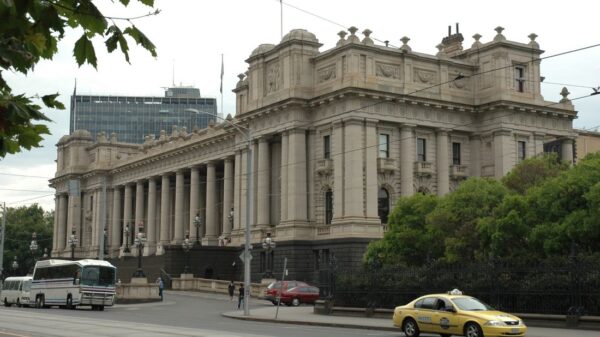The rapid urban development in Sydney has significantly diminished the city’s capacity for local food production, transforming its once-bountiful agricultural landscapes into urban sprawl. Historically, Sydney’s greater metropolitan area supported its population with a rich variety of crops, orchards, dairies, and market gardens. However, pressures from development have led to the loss of these vital agricultural resources.
In 1951, then-premier of New South Wales, Joseph Cahill, recognized the looming threat to Sydney’s food bowl. He promised to preserve rural areas for essential food production, soil conservation, and irrigation. Unfortunately, this commitment was largely unfulfilled. As suburban expansion accelerated, farms were replaced by housing developments, and smaller urban farms faced increasing pressure from developers and larger agricultural producers.
Currently, the city of over five million residents relies heavily on food transported from distant farms, which undermines local food security and resilience to climate change. Despite having potential areas for food production, Sydney’s planning policies have historically favored urbanization over agricultural preservation.
Historical Significance of Sydney’s Food Production
The agricultural history of Sydney dates back to the 18th century when naturalist Joseph Banks documented the region’s abundant botanical resources in 1770. Although early European settlers struggled with the sandy soils, by the mid-19th century, the Botany area emerged as a prolific food district. Chinese market gardeners utilized innovative methods to transform the local landscape, supplying nearly half of Sydney’s vegetables at their peak. However, by the 1970s, many of these market gardens were displaced due to industrialization and discriminatory policies, leading to a sharp decline in local food sources.
The inland regions, particularly around the Hawkesbury River, became essential for agricultural production, with farmers cultivating wheat and maize in the late 18th century. Despite the rich floodplains that supported these crops, urbanization after World War II further eroded Sydney’s fertile agricultural land.
The legacy of Sydney’s food production is diverse, ranging from the historic success of the Granny Smith apple to the industrial-scale poultry farming that emerged in Liverpool. Noteworthy developments included the establishment of Australia’s first irrigation district in 1856 and the prolific dairy industry, which registered 517 dairies in 1932.
The Need for Change in Urban Planning
Despite Sydney’s deep agricultural roots, modern planning practices have consistently prioritized urban development over the preservation of farmland. Unlike regions such as England, which implement green belts, or Oregon in the United States with urban growth boundaries, Sydney’s approach has often viewed farming as a temporary stage before urbanization.
As of now, Sydney’s food system is vulnerable, heavily reliant on food transported from hundreds or thousands of kilometers away. This reliance places the city in jeopardy, especially in the face of natural disasters and climate fluctuations. The energy consumed in transporting food often exceeds the caloric energy of the food itself, further complicating the city’s food security.
While the trend of urban sprawl has dominated the landscape, there remains a glimmer of hope. Western Sydney still has available farmland that could be revitalized to support local food production. Urban planners and decision-makers now face the challenge of re-centering the city around sustainable food production, treating it as essential civic infrastructure rather than expendable land.
In conclusion, while Sydney’s agricultural heritage has suffered considerable losses, it is not too late to reclaim some of what has been lost. By prioritizing local food production, the city can build a more resilient and equitable food system that honors its rich history and adapts to future challenges. As food production becomes increasingly crucial for urban sustainability, Sydney’s journey towards recovery offers valuable lessons for cities worldwide.


































































